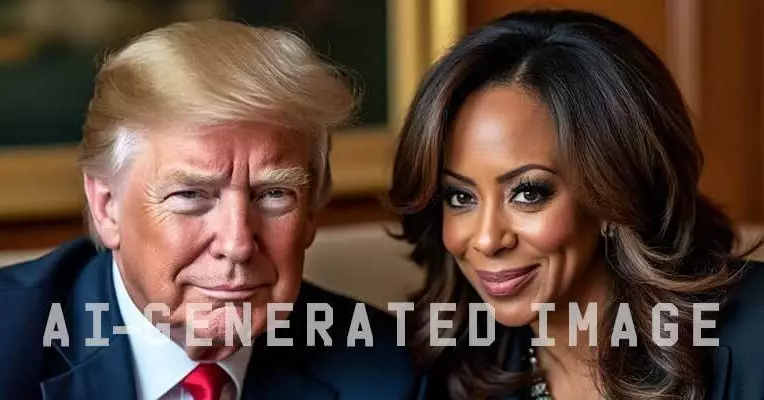The recent incident where Elon Musk shared a fake image of Kamala Harris dressed as a “communist dictator” highlighted the limitations of AI image generation tools. The photo, created using X’s Grok tool, bore only a passing resemblance to the vice president, leading many users to criticize the tool’s inability to accurately depict Harris. One user even noted that the generated image looked more like a random Latina woman than the actual Vice President.
AI-generated images of Kamala Harris have consistently fallen short of accuracy. An AI-generated video showing Harris and Donald Trump in a romantic relationship went viral on X, garnering nearly 28 million views. However, throughout the video, Harris morphed into different people while Trump’s imagery remained consistent. Even attempts to use Grok to create a photo of Harris and Trump reading a copy of WIRED resulted in accurate depictions of Trump but inaccurate representations of Harris. The images of Harris varied in features, hairstyles, and skin tones, occasionally resembling Michelle Obama.
Grok, unlike some high-profile AI image generators, allows users to create faked photos of political figures. Earlier this year, Midjourney prohibited users from creating images of Trump and President Joe Biden due to concerns about the tool being used to create politically charged images. Similarly, OpenAI’s ChatGPT and Google’s Gemini refused to produce images of Harris or Trump during WIRED’s testing. Although some open-source image generators, like Stable Diffusion, can produce images of politicians, the accuracy of these images, particularly those of Harris, remains questionable.
Modern AI image generators rely on diffusion models to generate images from text prompts. These models are trained on thousands of labeled images, typically sourced from the web or other databases. Joaquin Cuenca Abela, CEO of Freepik, noted that the difficulty AI generators face in accurately depicting Harris, compared to Trump, is due to the fewer well-labeled pictures of her available for training. While Trump has been extensively photographed, Harris has fewer images available, as evidenced by Getty Images’ search results. With 63,295 images of Harris compared to 561,778 images of Trump, AI image generators struggle to accurately depict the vice president due to the lack of training data.
The challenges faced by AI image generators in accurately replicating political figures like Kamala Harris highlight the limitations of current technology. Despite advancements in AI, the accuracy of generated images remains questionable, particularly when it comes to figures with limited training data. As AI continues to evolve, addressing these challenges will be crucial in improving the accuracy and reliability of AI-generated content.


Leave a Reply
You must be logged in to post a comment.